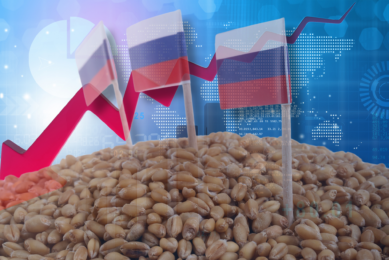The premise
Those of us in the feed industry have a unique opportunity to help with the procurement, usage, and distribution of supplies within the food chain. If we do this well, the planet as a whole is improved. If we do this poorly, some will benefit, some will loose. Loosing at this game has and will continue to have dire consequences.
Energy, global trade, the threat of terrorism, poverty, environment, and subsidies will all have an impact on the feed industry. It is more critical than ever for this industry to use information technology in decision-making.
A global marketplace
All companies should recognize that no matter how large or how small, we are part of a global marketplace, which has significant implications on how decisions will get made and how we operate our businesses. Technology is going to be the enabler that will allow us to compete globally for commodities, and satisfy demand for finished feed and feedstuffs. The right information at the right time is and will continue to be critical to our operational excellence.
It’s in the integration of information where we will find our success – both within our own organizations – and with our customers and our suppliers. The great equalizer will be information management technologies that enable the entire supply chain to communicate in real-time. Each link in the supply chain will have the exact information it needs at the precise moment that information is needed. I would argue that "what is really required" – is more than just the traceability of "one step back and one step forward".
The new 21st century value chain
Trade forced reduction in farm subsidies will create a fundamental shift in what crops are grown and how land is ultimately used. This represents a new value-chain in which feed companies will have to re-think their role and participate downstream in some value-added way.
Maybe that means becoming a supplier or partner. Or filling a market niche like "identity preservation" in which technology enables the feed company to certify the origin of all ingredients and become a "value add" for the food producer to command a higher market price for his product.
"Certified organic" is one example of how the feed industry can play a value-added role in the overall ‘farm to fork’ supply chain. The new concept of branded beef—like Kobe—rests on the producer’s ability to charge more for his meat because the animal’s diet results in better tasting, more flavorful beef. It’s all about creating a higher perceived value for a product. And it’s the power of "Information-At-Your-Fingertips" that makes it possible for feed companies to participate downstream in this process and provide additional value to the food producer.
Consolidation & Control: A new model
As you all know, the structure of the livestock industry is undergoing rapid change in its fundamental structure. These dramatic shifts will require feed suppliers to change in lock-step to meet the livestock producer’s emerging needs.
Consider for a moment this new scenario, which is putting pressure on the supply chain: The family ranch has morphed into a new enterprise in which the land is still held by the ranch owner but the animals are owned and managed by a third party.
That third party also owns livestock at many other ranches—widely dispersed across tens of thousands of open acres.
Based on the new geography, it is impossible for the livestock owner to physically monitor and manage the animal’s feed supply. And the absence of tight controls over the feed supply creates either real (or perceived) vulnerability to feed contamination.
In this scenario, "feed safety" becomes a critical concern for the livestock producer. By providing certification of ingredient origin and chain of custody, a feed producer can provide additional value in this new supply chain. Again, "Information Integration" or the ability to have the right information "at your fingertips" when you need it—becomes that much more critical to your business value.
The world as we know it is changing dramatically. We are part of a global supply chain that is subject to many political, economic, environmental and trade issues—each of which can have a significant and dramatic impact on the feed industry.
But with this change also comes opportunity in the form of new and advanced technology solutions that can help you operate and grow your business in this dynamic global marketplace.
We’ll begin by exploring technologies that hold promise next month…. I hope to get some great feedback.











